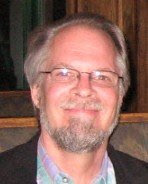 A 27-year-old Buddhist monk, when asked how he was feeling at the Parliament of the World's Religions, replied "overwhelmed and overinspired." There is so much going on here, and one has to make such difficult choices about what to do, that it's actually stressful.
A 27-year-old Buddhist monk, when asked how he was feeling at the Parliament of the World's Religions, replied "overwhelmed and overinspired." There is so much going on here, and one has to make such difficult choices about what to do, that it's actually stressful.As the week progresses, it seems like there are two major ways of looking at interfaith dialogue. One is to want to be as inclusive as possible and therefore not to enter into disputes about sensitive social or political issues. The emphasis, as Executive Director Dirk Ficca says, is on relationships, not issues.
The other major point of view is that the human community has urgent needs and that action is needed right now, action that will inevitably ruffle some feathers and make some people unwilling to participate. Rabbi Michael Lerner and Sister Joan Chittister of the Network of Spiritual Progressives are prophets with this sense of urgency.
Exactly the same issue of how to approach interfaith dialogue is present in Unitarian Universalist congregations and other religious communities. And in some ways, both views are right.
The Street Theology of Anger
Exactly the same issue of how to approach interfaith dialogue is present in Unitarian Universalist congregations and other religious communities. And in some ways, both views are right.
The Street Theology of Anger
 Here is a photo of Imam Abdul Malik Mujahid, the incoming Chair of the Council for the Parliament. He gave a fascinating talk on why young Muslims are drawn into what he calls a "street theology of anger." Particularly in Afghanistan, these young people have never known any reality other than war.
Here is a photo of Imam Abdul Malik Mujahid, the incoming Chair of the Council for the Parliament. He gave a fascinating talk on why young Muslims are drawn into what he calls a "street theology of anger." Particularly in Afghanistan, these young people have never known any reality other than war.Dr. Mujahid asked us what we would do if someone injured us or our property. Most of us would call the police. He then asked what we would do if we had no phone with which to call, or if the police were actually good friends of our attackers. And what if there were no elections to get rid of the corrupt police chief? What would you do? Such is the reality of the people of Afghanistan.
(In the photo above, some of you may recognize Lynnda White, who is asking Dr. Mujahid to come and speak in Peoria. He said yes!)
Paul Carus Award
Last night the Parliament presented the Paul Carus Award. Paul Carus, of LaSalle, Illinois, was one of the founders of the 1893 Parliament and tried for the next thirty years to organize a second Parliament. After his death, his family endowed a yearly $100,000 award for a person or group that is doing outstanding interfaith work.
 This year the award went to an organization called IFAPA, or Interfaith Action for Peace in Africa. They are a coalition of eight major religious groups in Africa who have joined together to try to prevent wars on that continent. The gentleman at right is a member of IFAPA. We had the pleasure to meet him and converse briefly with him in French, our only common language.
This year the award went to an organization called IFAPA, or Interfaith Action for Peace in Africa. They are a coalition of eight major religious groups in Africa who have joined together to try to prevent wars on that continent. The gentleman at right is a member of IFAPA. We had the pleasure to meet him and converse briefly with him in French, our only common language.Charter for Compassion
There is also a major movement here to support the Charter for Compassion, a global ethics statement developed by Karen Armstrong. For more on the Charter for Compassion, see my earlier blog post on that subject.
All good wishes to my readers! Please comment if you wish.
All good wishes to my readers! Please comment if you wish.




Hi Michael! I'm finally taking some time to go through your blog, and you are doing a wonderful job of description for us! Isn't is wonderful how small the world is... and dauntingly big and complex also!
ReplyDeleteWe are expecting several days of snow here, we'll have it cleared up for your return (I hope).
Take Care and say Hi to everyone for me!
Peace,
Jim Parrish
Michael, we are so glad you are able to post some of the experiences you are having. I imagine you will get several sermons worth of information, and maybe even an adult R.E. class as a result of your and our group's experiences.
ReplyDeleteWe miss you here!!
Judith & Sean
P.S. We send our deep regards to the entire Peoria group.
Greetings down under, I am really sorry I am missing the event of a lifetime! I shall put it on my wish list for next time.
ReplyDeleteSay hi to everyone! We will miss you all at the meeting tomorrow.